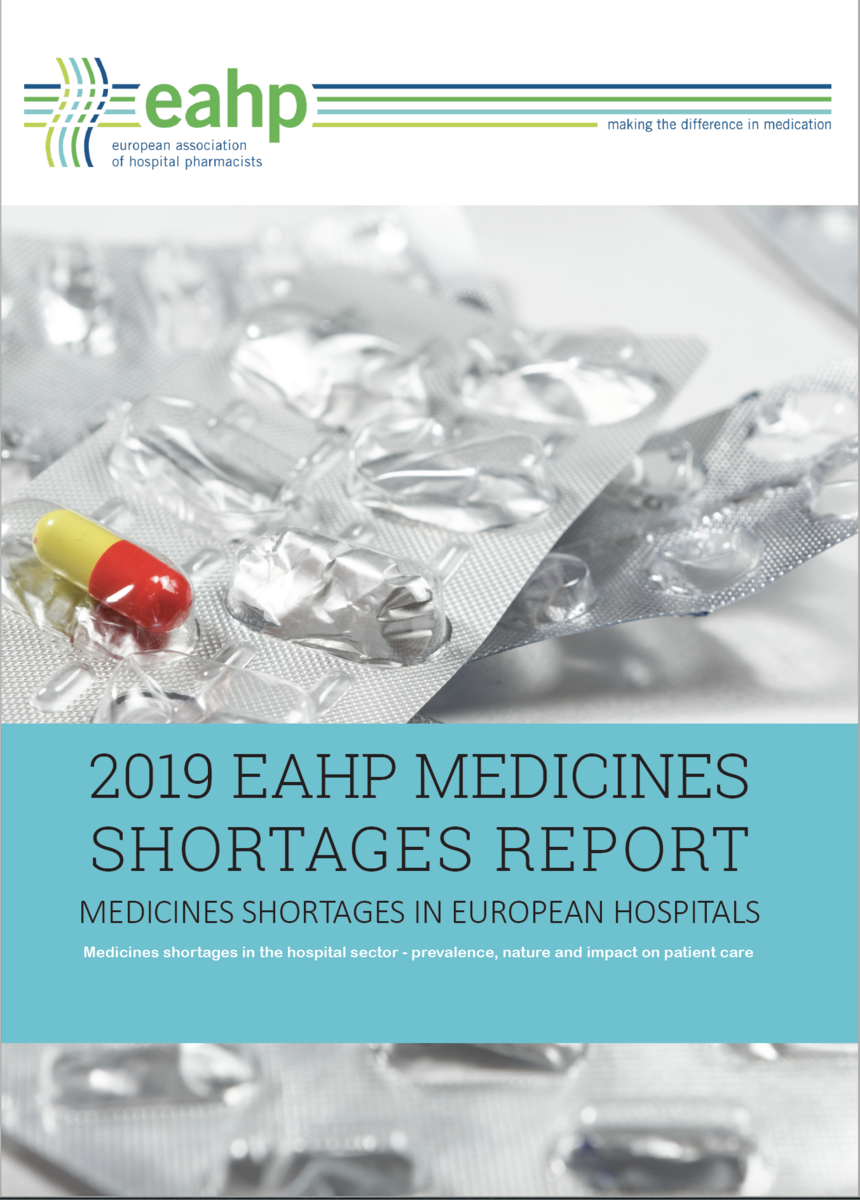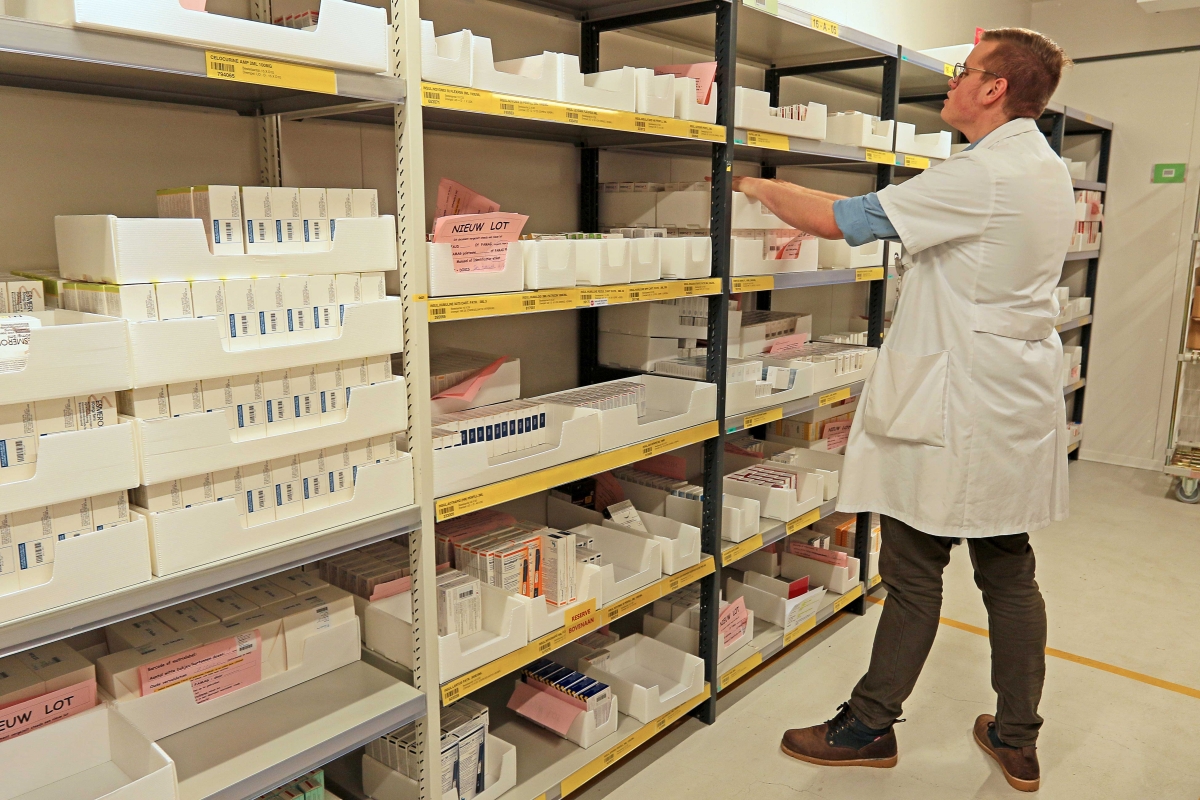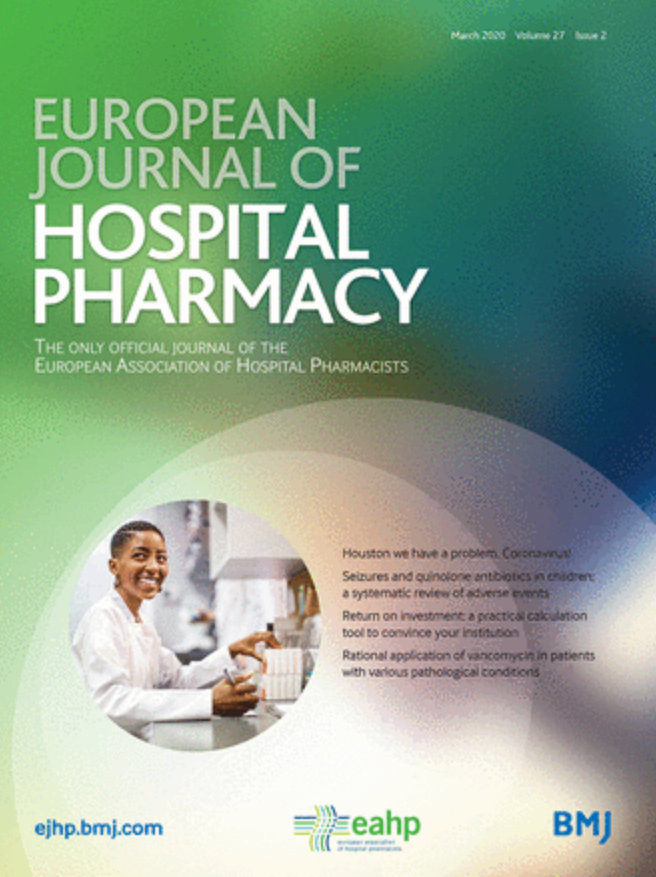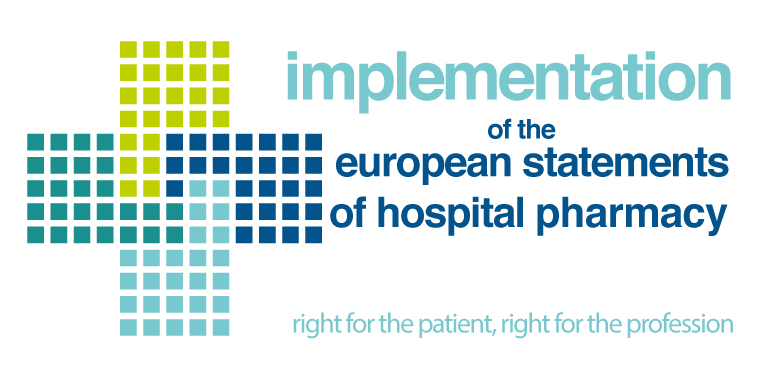The EAHP EU Monitor is a regular round up of news relevant to hospital pharmacy in Europe.
You can subscribe to receive the EAHP EU Monitor by email HERE.
EAHP releases results of 2019 Medicines Shortages Survey

On 7 April, EAHP published the results of its 2019 Medicines Shortages Survey which for the first time also collected feedback from patients, nurses, physicians and other healthcare professionals. Responses showed that the problem of shortages continued to grow with delays in care or therapy, suboptimal treatment, including inferior efficacy, and cancellation of care being mentioned as the most frequent type of impacts felt by patients.
The data collected by EAHP between November 2019 and mid-January 2020 aimed at obtaining more information on reasons for and management of medicines shortages as well as details on their impact on patients. For hospital pharmacists, the global shortage of an active pharmaceutical ingredient as well as manufacturing and supply chain problems ranked the highest, while physicians included the pricing of a medicine, supply chain problems and issues related to parallel export as the leading reasons for medicines shortages. Several patients that participated in the data collection activity stressed their dissatisfaction with how their problem was handled since they desired the provision of more detailed reasons behind not receiving the prescribed treatment.
Solutions to solve medicines shortages put forward by the survey participants included for example improving communication, applying prudent procurement procedures and enhancing the monitoring. EAHP consequently seeks to encourage all involved actors, including hospital pharmacists, to adopt reactive measures, such as carrying out prospective risk assessments, as well as proactive measures, like prudent tendering practices. Also, the Association would like to reiterate its request linked to the improvement of transparency and information sharing. Only a comprehensive communication strategy on shortages targeting all European states will ensure that all supply chain actors, including hospital pharmacists, receive adequate information on the shortage of medicines in their country.
Read the report HERE
Access the infographics HERE
Vaccination hesitancy social media mapping

Ahead of the European Immunisation Week, the European Centre for Disease Prevention and Control (ECDC) made public a technical report reviewing social media monitoring methods and interventions relating to vaccine hesitancy. The report stressed the need for incorporating social media monitoring as part of the traditional vaccination surveillance strategies of health authorities.
The research project tried to collect knowledge about social media and vaccination to identify preferences for using different social media platforms as a source of information on vaccination. The collected information was analysed to determined how social media monitoring methods or tools could be used for communication around vaccination. The review of 115 scientific articles showed, for example, that between 4 and 62% of various study populations in different countries use social media as a source of information on vaccination, with results varying by type of social media platform. Overall, Facebook was the most common social media resource for information on vaccination.
The European Immunisation Week takes place between 20 to 26 April 2020. In line with the slogan “Prevent. Protect. Immunize.”, it promotes the importance of immunisation for the prevention of diseases and the protection of life.
Access ECDC’s technical report HERE
Learn more about the European Immunisation Week HERE
Commission Guideline on medicines use

In light of the growing challenges posed by the COVID-19 pandemic, the European Commission released Guidelines on the optimal and rational supply of medicines to avoid shortages during the COVID-19 outbreak. The guidelines focus on the rational supply, allocation and use of medicines to treat COVID-19 patients.
The document calls for solidarity between EU countries, provides suggestions for ensuring supply and shares recommendations for the use of medicines in hospitals and for the optimisation of sales in community pharmacies to avoid hoarding. Concerning the optimal use of medicines in hospitals the guidance document recommends:
- Equitable distribution of available medicines
- Exchanging hospital protocols to treat patients
- Considering alternative medicines on the basis of hospital protocols and national guidelines
- Extending the expiry dates of medicines
- Considering the use of magistral preparations or veterinary medicines
- Encouraging clinical trials for medicines used off label
Access the Guidelines HERE
Access the factsheet HERE
Updates from the EMA

Ahead of the Easter holidays, the European Medicines Agency (EMA) released new information linked to the coronavirus pandemic, including an update on the measures to support the availability of medicines and the compassionate use of remdesivir, and its 2025 Regulatory Science Strategy.
EU authorities agree new measures to support availability of medicines used in the COVID-19 pandemic
The continued availability of medicines, in particular those used for patients with COVID-19, is of critical concern for EMA and its partners in the European medicines regulatory network in light of the medical emergency presented by the pandemic. Some EU Member States have indicated that they are starting to see shortages of certain medicines used for patients with COVID-19 or are expecting such shortages to occur very soon. These include medicines used in intensive care units such as certain anaesthetics, antibiotics and muscle relaxants as well as medicines used off-label for COVID-19. EU authorities are therefore putting in place additional measures to mitigate the impact of the pandemic on the supply chain of medicines in a coordinated manner.
More information is available HERE
Please check EMA’s dedicated webpage on COVID-19 for the latest updates.
Recommendations on compassionate use of remdesivir for COVID-19
During an extraordinary virtual meeting held on 2 April 2020, EMA’s human medicines committee (CHMP) gave recommendations on how the investigational antiviral medicine remdesivir should be used for treating coronavirus disease (COVID-19) in compassionate use programmes in the European Union. Compassionate use programmes, which are set up at the level of individual EU Member States, are intended to give patients with a life-threatening, long-lasting or seriously disabling disease and no available treatment options, access to treatments that are still under development and that have not yet received a marketing authorisation.
In this case Estonia, Greece, the Netherlands and Romania requested an opinion from the CHMP on the conditions under which early access to remdesivir through compassionate use could be given to patients with COVID‑19. In severe cases, COVID-19 can cause pneumonia, severe acute respiratory syndrome, multi-organ failure and death.
“Clinical trials remain the gold standard for the collection of robust data on the safety and effectiveness of investigational medicinal products, but the CHMP acknowledges the need for a harmonised approach to compassionate use in the EU to allow access to remdesivir for patients who are not eligible for inclusion in clinical trials”, said Dr Harald Enzmann, the chair of the CHMP. “The CHMP encourages the company to make remdesivir available in a fair and transparent way to those Member States wishing to take part in international clinical trials or treat patients in compassionate use programmes.”
Remdesivir has been shown to be active against SARS-CoV-2 and other types of coronavirus (i.e. SARS-CoV and MERS-CoV) in laboratory studies; however, there are currently only limited data on the use of remdesivir in patients with COVID‑19. The aim of the CHMP’s recommendations for remdesivir is to ensure a common approach regarding the criteria and conditions of its use prior to authorisation of compassionate use programmes by Member States. The recommendations are for EU Member States that are considering setting up such a programme and their implementation is not mandatory. In addition to describing which patients may benefit from the medicine, the recommendations explain how to use remdesivir and give preliminary information on its safety.
More information is available HERE
Please check EMA’s dedicated webpage on COVID-19 for the latest updates.
Advancing regulatory science in the EU – new strategy adopted
EMA has published its Regulatory Science Strategy to 2025 today. The strategy provides a plan for advancing regulatory science over the next five years, covering both human and veterinary medicines. It comes in response to the dramatic acceleration of the pace of innovation in recent years and the need for regulators to be ready to support the development of increasingly complex human and veterinary medicines that combine different technologies. The ongoing COVID-19 pandemic underlines the need for rapid and close engagement of all stakeholders and partners involved in the development and supervision of medicines in the European Union and globally, which is one of the fundamental principles of this strategy. The learnings from the handling of this public health crisis will be incorporated so that we can adapt our process in real-time, where needed.
The strategy sets out key areas where new or enhanced engagement of the European medicines regulatory network is essential and where advances in regulatory science are necessary. The document identifies strategic goals for such engagement for human and veterinary medicines and proposes core recommendations and underlying actions to support these.
More information is available HERE
EJHP: The impact of paediatric dose range checking software

The online first edition of the European Journal of Hospital Pharmacy (EJPH) shared an original article investigating the effects of paediatric dose range checking clinical decision support software on overdosing-related outcomes. The study concluded that this type of software did not reduce the incidence of prescription overdosing errors in a paediatric hospital setting but the level of harm associated with the overdosing errors may have been reduced. Use of the software seemed to be safe and it was perceived to be beneficial by prescribers.
Read the article HERE
 [COVID-19 Updates]
[COVID-19 Updates]
EAHP’s COVID-19 Resource Centre
To assist its member associations and individual hospital pharmacists in this critical time with the provision of the best possible care for patients, EAHP has decided to gather and make available information on COVID-19 relevant for the hospital pharmacy profession.
Access the Resource Centre HERE
ECDC: Infection prevention and control and preparedness for COVID-19 in healthcare settings – second update
The document of the European Centre for Disease Prevention and Control (ECDC) aims ar providing guidance to EU/EEA healthcare facilities and healthcare providers on infection prevention and control measures for the management of suspected and confirmed cases of COVID-19 infection in healthcare settings, including long-term care facilities.
Read more HERE
FAMHP measures to avoid medication shortages
The Federal Agency for Medicines and Health Products (FAMHP) has published measures for avoiding medicines shortages.
Read more HERE
Do you know about the Statement Resources?

Since 2016 EAHP has been working on the implementation of the European Statement of Hospital Pharmacy. To help hospital pharmacists with the putting in practice of the Statements in their pharmacy, EAHP has published resources for each of the 6 Sections. These include for example case studies and best practice examples.
Access the Statement Resources HERE
___________________________________________________________________________________________________________________
Consultations

EMA – Points to consider on implications of Coronavirus disease (COVID-19) on methodological aspects of ongoing clinical trials
The European Medicines Agency (EMA) is collecting input on guidance looking at the points to consider on implications of Coronavirus disease (COVID-19) on methodological aspects of ongoing clinical trials. Due to the urgency, this guidance is issued with a 4-week public consultation. It should be noted that due to the rapidly evolving situation further updates to this guidance are possible and likely.
Deadline – 24th April 2020
Access consultation HERE
Commission – Europe’s Beating Cancer Plan
The public consultation for Europe’s Beating Cancer Plan is seeking to collect feedback on the pillars of the plan which include cancer prevention, diagnosis, treatment, follow-up care and research from individual citizens, patients, and carers replying in their personal capacity as well as health professionals and organisations.
Deadline – 7th May 2020
Access consultation HERE
Commission – White Paper on Artificial Intelligence
The European Commission is seeking input on its White Paper on Artificial Intelligence (AI) via a public consultation. Stakeholders are encouraged to review the measures and policy options put forward in the AI White Paper.
Deadline – 31st May 2020
Access consultation HERE





























 [COVID-19 Updates]
[COVID-19 Updates]

